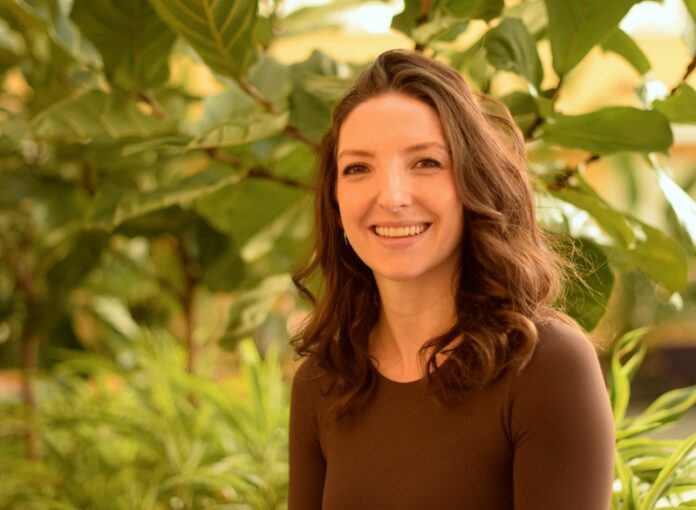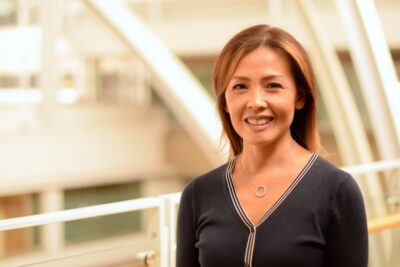
Linda Ahn and Sarah McDermid-Flabbi have learned leading is not about having all the answers.
Members of different health professions in different UHN hospitals, the pair were among about 100 participants who recently completed the Leadership Accelerator for Clinical Leaders. The group took part in workshops, learning groups, assessments and a leadership panel over the six-month course, which is part of UHN’s commitment to driving a high-performance culture.
One of the sessions was on coaching. Its lessons surprised both Linda and Sarah, and still resonate.
“Coming from a clinical background, I pride myself on being solution-driven, giving advice, offering recommendations,” says Linda, a registered dietitian who joined UHN in 2001 and is now an Operations Lead in Allied Health at Toronto Western Hospital. “But I learned that’s not always the best way to help.
“I learned to slow down, ask more questions, be more curious. By understanding more of the issue someone on your team is facing, you can help them find solutions and empower them.”
Those sentiments are echoed by Sarah, a registered nurse with UHN since 2014 who worked as an advanced practice nurse educator (APNE) in the Emergency Department at Toronto General Hospital from April 2020 until earlier this month, when she moved to UHN’s Peter Munk Cardiac Centre as the Nurse Lead developing the Nursing Clinical Coach and Mentorship Program.
The goal of the Leadership Accelerator for Clinical Leaders was to offer tailored development to individuals who have shared an interest in advancing to leadership roles in UHN clinical areas to grow their leadership capacity, and ultimately build the leadership bench strength of the organization.
“It was a lightbulb moment,” she says of the session on coaching. “I had always looked at my role as a fixer, someone who had to have answers to everyone’s questions to have value, to be a go-to person.
“Being more inquisitive, asking people about their challenges and possible solutions from their perspective, engages them more in their work. I ask different questions because of that module – it was a total
game-changer.”
The program, which celebrated its graduation on Monday, Oct. 30, aligns with the new UHN Leadership Competency Framework approved by Executive Leadership Forum in April of this year.
“We want to strengthen the leadership skills that are most important to delivering impact across the organization,” says Sheila O’Brien, UHN’s Executive Vice President of People & Culture.
“Our goal is to enhance the leadership capabilities of our employees because we know that effective leadership in health care is directly linked to improved patient outcomes, better organizational performance and enhanced employee engagement,” she says.
The goal of the Leadership Accelerator for Clinical Leaders was to offer tailored development to individuals who have shared an interest in advancing to leadership roles in UHN clinical areas to grow their leadership capacity, and ultimately build the leadership bench strength of the organization.
In April of this year, Linda, Sarah and others identified by their leaders as potential participants, were notified by UHN People & Culture about the program, including the time commitment, topics covered and learning objectives. Classes – virtual and in-person – and the related homework were done in addition to continuing their full-time job.
“I was very excited and intrigued,” Linda says of the original email, adding that “it was a real confidence boost” and “I felt valued” to know her managers and director were recommending her for the program.
“I read through the topics outlined and realized I wanted to learn more about all of it to know if I’m doing things right, or there’s a better way. It all looked very relevant to my day-to-day work.”
Sarah says she saw the email inviting her to join the program as “an olive branch to grow as a leader and grow in my own development.
“It also puts into perspective that people see the work you do, and see your potential.”
From May through October, participants – some already in UHN clinical leadership roles such as supervisors and leads, others who aspire to their first people leadership role – completed six modules. Among the topics were “Essentials of Leadership,” “Making Meetings Work,” “The Coaching Habit” and “Navigating Conflict.”
“In designing the program, we wanted to ensure it was aligned to our new UHN Leadership Competency Framework to help participants understand not only what it means to be a leader but also the unique leadership behaviours that our most effective leaders at UHN demonstrate each and every day,” says Alyssa Roebuck, Senior Advisor, Leadership Development with People & Culture.

Alyssa leads all of UHN’s current leadership programs, including Emerging Leaders, and works closely with Jessica Marangos, Senior Director, Talent and Learning, to set the future direction of UHN’s Leadership Strategy. In the coming years, it will include new development programs for leaders at all levels in the organization, and an integration of the new UHN Leadership Competency Framework into how UHN executes key recruitment, talent management and rewards processes and programs for leaders.
“Our aim was to provide participants with an experience that would equip them with essential leadership skills that can be put into practice right away, whether as an individual contributor or as a leader,” Alyssa says.
Alyssa says one of the great aspects of the program was the ability for participants to connect – and re-connect – with each other in the in-person sessions, which were a shift from the virtual world everyone has grown so accustomed to over the course of the pandemic.
“The energy in those sessions was truly rewarding to see, and as we look towards future programs, we recognize the value that those connections bring,” Alyssa says.
Linda and Sarah say completing the program has strengthened their connection and commitment to UHN. Both add that it was invaluable to meet and work with colleagues from other health professions and different sites across the organization, relationships that will be beneficial on the leadership path.
“I’ve built a lot of relationships at UHN that make me want to stay here,” Sarah says. “This program fostered those relationships and built new ones, and it’s opened my mind to different ways of thinking, different ways to lead.”
Linda says the program is “worth every minute of your time” because it lets you study different leadership skills and styles, something that she found very aspirational.
“It reinforces why I’ve been with UHN for this many years,” Linda says. “It shows that the organization values people and will invest in them to be the best they can be.”

